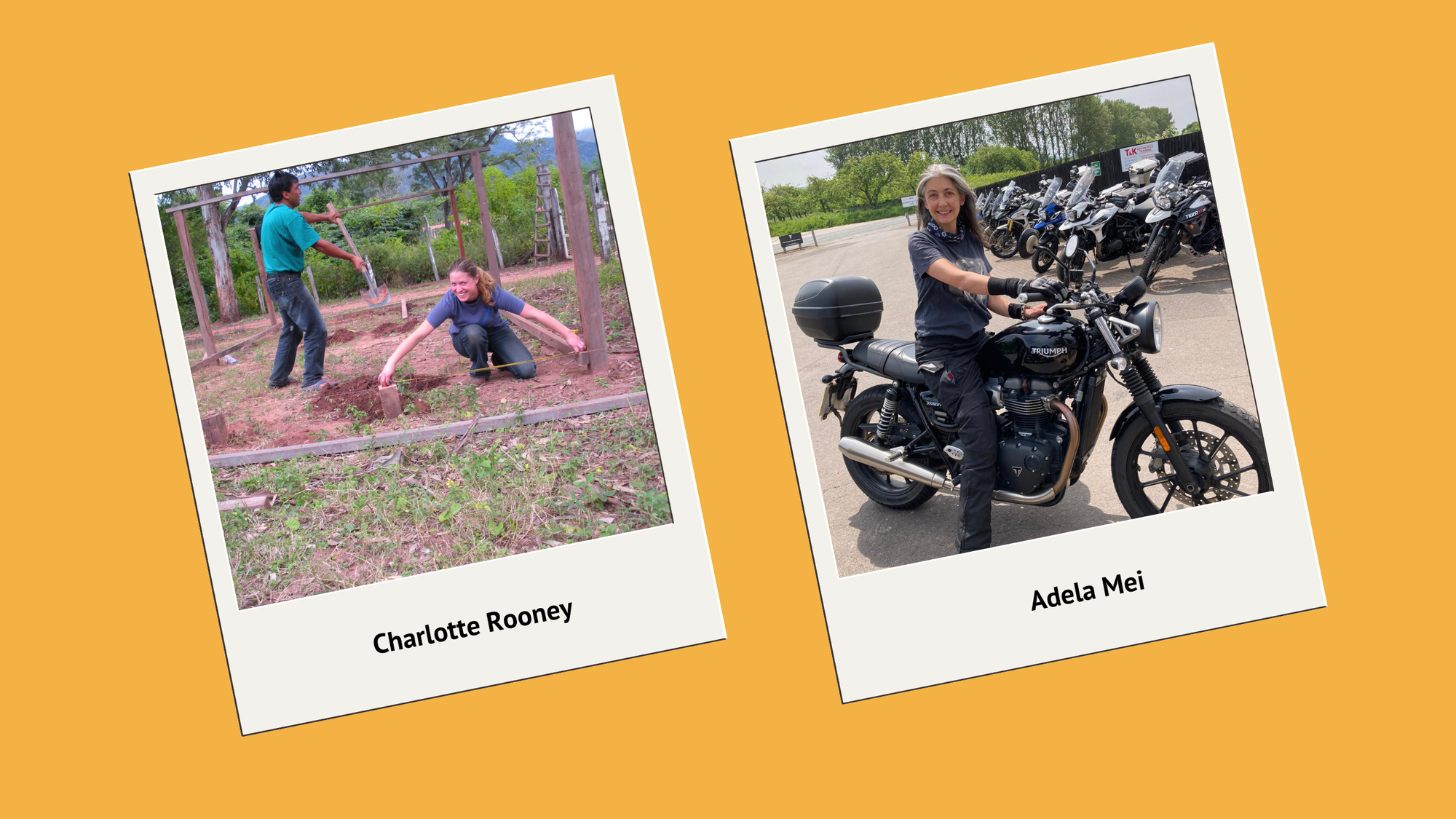Taking a step away from the things that feel familiar isn’t always easy, but doing so could unlock a whole new way of living
There are few things that we can guarantee in life, but one of them is that time will keep on moving forward. Each day will roll into the next, the calendar cycles through the months, and the years keep coming – the next one always feeling slightly faster than the last.
Whether you find this idea a comfort or a concern will depend on your outlook, but something that many of us fall into is a level of predictability. It’s not necessarily a bad thing. When we feel safe and secure, taking our time and falling into patterns, banking on the idea that ‘someday’ will happen, someday, is natural. In fact, to some degree, it’s necessary.
Many of us live lives that have to be predictable in some sense. We have to be in certain places at certain times. Caring responsibilities, financial commitments, health, and countless other demands can play a role in why we remain in our comfort zones. But, could there be a benefit to pushing those boundaries every now and then?
In a 2023 study, published in Frontiers in Psychology, researchers analysed the experiences of 198 students, from six courses in five different countries, as they were encouraged to leave their comfort zones with a series of eight to 10 challenges. What the researchers found was that learning occurred when the participants left their comfort zones, and that the key to learning was an element of surprise. The paper on the research starts with a quote from the Roman playwright Terentius: Fortes fortuna adiuvat, fortune favours the bold.
In the real world
It’s a proverb that suits Charlotte Rooney. At the age of seven, Charlotte moved from the UK to Canada to begin school in a brand new country. At age 15 she moved to France to finish high school. At 18 she moved to the Netherlands for university, and at 23 she was off to Peru to run a volunteer project. Four years later, Charlotte arrived in Bolivia to set up an agricultural business school in a rural village, before becoming a humanitarian aid worker in a war zone in the Democratic Republic of Congo (DRC). She later joined a management firm, before leaving it all behind in 2022 to begin her coaching and mentoring business.
When she reflects on what this experience has taught her, she shares how living in many countries, meeting new people, and speaking multiple languages has transformed her ability to connect with others.
“In a general sense, pushing yourself to do things which feel uncomfortable causes you to grow and learn new things (as long as you are open to it!). You will find out that you have talents you didn’t know about, and strengths that you love using, which means you can use them more and give yourself more chances to be happy.”
But, as Charlotte explains, ‘achievements’ in whatever form that may be for you, aren’t the only reward for stepping out of your comfort zone.
“Challenges teach you how to ask for and accept help, and how to recognise when you’ve gone too far to manage alone,” she explains. “Sometimes that can be as small as needing to ask for a translation, and other times it can be much more consequential, like when you realise that you have agreed to do one more project than you can handle without burning out, and you need to have an awkward conversation with the people you have overcommitted yourself to. Or, it can show you what you don’t want – like when a crisis in the DRC taught me that I no longer wanted to be an adventurer chasing danger.”
It’s also important to recognise that precisely what pushing yourself out of your comfort zone looks like will be different for each of us. Take Adela Mei, for example, who experienced a pivotal moment in her life when, aged 50, she learnt to ride a motorbike.

“Last year, I was suffering from social media burnout from working online for long hours, and leading a life plugged into my computer as all my coaching work was online,” Adela explains. “I celebrated my 50th birthday and decided to push myself out of my comfort zone, and do something I had wanted to do since I was a teenager: learn to ride a motorbike!”
Adela recalls having to overcome a lot of fear and doubt as she began her lessons, but with perseverance and practice, she passed her test to get her full bike licence.
“I was drawn to learning to ride a bike as I needed something drastic to shift in my life,” she says. “This experience changed me completely; I felt freedom and confidence knowing now that I can do anything that I put my mind to.”
Is this your year?
In a study published in Psychological Science, researchers found that seeking discomfort can lead us to feel motivated, because those tangible feelings of discomfort can be seen as progress towards our goals. Other studies have similarly linked it to inspiration, personal growth, and overall happiness.
Perhaps this is the year you start saying ‘yes’ more, or maybe open yourself up to new challenges and set goals that you always thought were beyond your reach. Whatever it may be, Charlotte has some insider tips.
“First, think about what it is that you really want to do, but are feeling nervous or afraid to do. When we do hard things, having a really compelling reason to do them makes it easier, because you can remind yourself when it gets hard and you’re tempted to quit, you can remind yourself why you’re doing it and get re-motivated. It’s going to feel uncomfortable at times – and that is normal.
“I would also plan for your recovery. Imagine it’s like you are inside a bubble, and what you want to do is gently stretch the bubble a bit (not explode it!) and then you let it come back to its normal size, recover, and remind your brain and nervous system that you are safe. That is what grows your self-trust. And what feels more manageable,” Charlotte continues.
There is a lot to gain from stepping out of our comfort zones every now and then, whether that’s in big or small ways, further afield or on your doorstep, in meaningful or playful ways. So, with all that to consider, what will you do next?
1. Start a conversation with a stranger.
2. Sign up to learn a new sport.
3. Make a meal with ingredients you haven’t tried before.
4. Set yourself a goal to complete this time next week, next month, or next year.
5. Go alone to something you usually do with others.
6. Read a genre you don’t normally pick up.
7. Learn a new professional skill.
8. Challenge a deep-rooted belief you hold.
9. Face a fear.
10. Explore a new area.


Comments